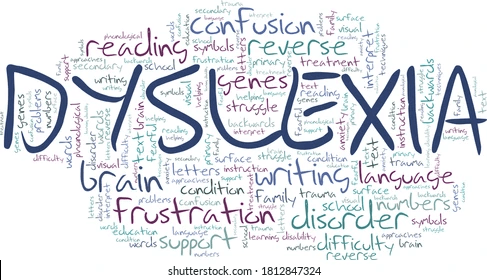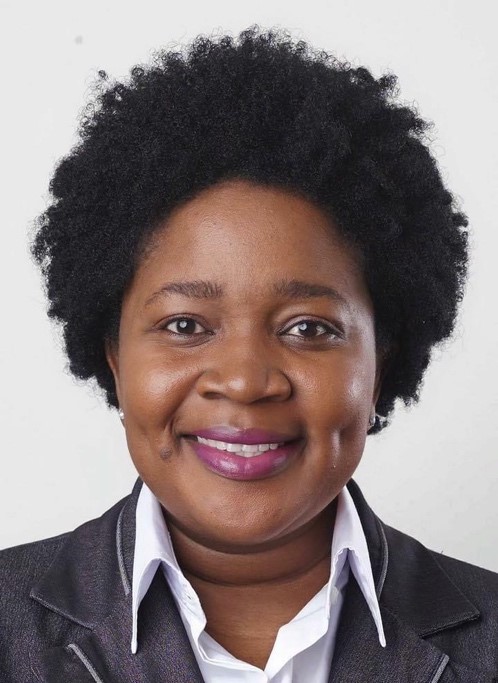In Africa, a greater percentage of the populace believe that dyslexia is not real and it is just a coined term used to refer to individuals, specifically children who are lazy in academics. We also have majority of people being ignorant of what dyslexia itself is all about.
Despite only a fairly recent move to eminence the awareness and understanding of dyslexia, its history could be dated as far as the 19th century where the condition was first described as “dyslexia” from the Greek meaning “difficulty with words”. In the 1870’s, dyslexia was popularly known as word blindness.
In recent times, there has been an increased emphasis placed on the awareness of numerous forms of specific learning difficulty, which dyslexia is inclusive in many parts of the world. On the contrary, although advocacies and creating of awareness is being championed in Africa, much is still not done. Hence, there is the need to create more awareness about dyslexia and advocate for children suffering from dyslexia.

Understanding dyslexia
Many times, children with dyslexia in our part of the world are neglected and not treated equally as their peers. First of all, most teachers are not even aware of what dyslexia is, and not to talk about parents. I remember being a student, we had teachers who ask the usual question “do we all understand?” and the moment majority of students reply “yes sir” we move onto the next topic. They care less about those who do not understand and do not even consider whether there are others who find it difficult to process the information. We find a typical example of dyslexia in the popular Hindu movie “Like Stars on Earth”.
Dyslexia can be described as a specific learning disability in reading which mostly affects spelling. It is neurobiological in origin as it can be characterised at the neurological, cognitive and behavioural levels. In other words, it is a continuum of difficulties in learning to read, spell or write, which persist despite appropriate learning opportunities. The characteristics of dyslexia vary from person to person, and no child/individual will have all these symptoms. Some of the symptoms are more prevalent than others.
The movie “Like Stars on Earth” illustrates dyslexia and its horrific pain as well as the beauty of it. The film tells a story of an eight-year-old dyslexic child named Ishaan, who could not get anything right at school. Although he excels in other courses like art, his academic performance was below expectation. Ishaan is literally losing his soul in a harsh and uncaring school system with parents and teachers not knowing or understanding the dilemma he is in.
He is dyslexic but nobody around him seems to recognize the problem. They see the symptoms but fail to entirely identify the cause. He becomes withdrawn and deeply depressed after repeated failures in academic settings that neither meet his individual needs nor acknowledge who he is. He is then sent to a boarding school without seeing any hope for this child’s future.
Luckily for him, a new art teacher came to his rescue. This new teacher found interest in Ishaan and put in efforts to gradually improve the life of the dyslexic child. As a teacher, he believed that every child is special and must have the chance of enjoying his/her school days. So he breaks the rules of how things are to be done and challenges his students to think outside of the box, to dream and imagine. With time, patience and care, he ultimately helps Ishaan find himself and began to catch up with his peers.

Although this film depicts a fictional character, Ishaan’s story is all too real. Analyzing the film, we see that the child’s parents and teacher created a myth that he is lazy and his mind always engages in mischievous activity, therefore sends him to a boarding school to be disciplined. Most children in Africa specifically Ghana, find themselves in similar situations which they cannot even voice out. This is because their teachers do not show concern but would rather cane them continuously or call them names like dump headed, good-for-nothing, failure, lazy student etc.
Our Ghanaian education focuses more on theory than practical work. We have so many subjects being taught with a lot more topics being covered in basic and high school, yet only few topics will be used to assess students and grade them to continue their studies. This is not a friendly approach and affects students with less learning skill, suffer from dyslexia as well as those who lack interest in certain subject(s).
Common signs of dyslexia
Here are some general indicators to know to identify a person with dyslexia. Difficulty reading; have trouble reading aloud and reading is below expectation. They are slow and labour-intensive with reading and writing; they can be clumsy, and may become withdrawn or isolated. They have problems with spelling and usually run away from activities that regard reading.
Often times, they have problems mispronouncing and retrieving words. Some dyslexics have an apparent lack of concentration, poor time concepts, planning and organizational skills. People with dyslexia also have memory problems such as difficulty processing information, following instructions and remembering things in sequential order. For example, days of the week, multiplication, tables, alphabets etc.
Family history is critical when dealing with dyslexia since it can be inherited. Dyslexia tends to run in families and appears to be linked to certain genes that affect how the brain processes reading and language. Parents may not even be aware that they have dyslexia as well.
Myths about dyslexia
Also, we tend to have some common myths about dyslexia. People think dyslexia is a vision problem and it is often caused by not reading enough. They also think kids who do not speak English cannot have dyslexia. Kids with dyslexia just need to try harder to read and dyslexia does not show up until elementary school. Dyslexia goes away once kids learn to read butt all of these are untrue stories about dyslexia. Dyslexia is a disability present at birth and cannot be prevented or cured, but it can be managed with special instruction and support. Dyslexia is a lifelong condition.
Another myth, we are all made to believe is that formal education is the only key to success therefore there is no promising future for average or weak students. This may not be entirely accurate. Depicting from the movie, we see this dyslexic child having great artistic skills and might end up as the world’s best artist, but this skill is overlooked.
Similar to our parts of the world, in the field of education, most parents wants their child to go into professions like doctor, engineer, pharmacist, architecture, politician among others whereas few give liberty to their children to do what they themselves love to do. So most children are forced to study what they have no interest in and if dyslexic children are found in this category, it shatters them completely.
Helping a student with dyslexia
Inequality in the Ghanaian educational system does not help dyslexic children especially in rural areas or from family with low income. Students in some part of the rural areas in Ghana do not have access to computers or other basic necessities to help them attain quality education yet they are expected to write the same exams as those in the cities which do not seem fair. Imagine a dyslexic child from such rural area; nobody will pay attention to him or her and same with dyslexic student from a poor income family. You are on your own and you become nobody’s business because no one believes you will amount to something and that can kill your own belief in yourself.
Parents, if your child is suffering from dyslexia, do not add up to what he is barely enduring in school. Do not abuse your child because he/she is not performing academically well. You should avoid beating your children and calling them names just because they had bad grades. Before you do any of these, first try to understand their problem.
From the illustration in the movie, we realized that the new art teacher had the patience and compassion to discover the real problem behind the dyslexic child in school. He even discovers the child’s passion which his parents and other teachers have overlooked over the years. Yes, if the teachers are not making time to help your child, you have to take up the mandate and help yourself. Create a convenient environment where your child will be able to share everything with you knowing that you are not going to spank, judge or insult him/her.
Overcoming dyslexia
Dyslexia can lead to many problems if not intervened. These include: low self-esteem, anxiety, aggression, behavioural problems, withdrawal from friends, parents and teachers. It can also prevent a child from reaching his or her potential. Also, it does not only affect your ability to read and write, in reality it can affect your memory, organization, time-keeping, concentration, multi-tasking and communication.
In order to help children with dyslexia (learning difficulties), special education should be inclusive in the Ghanaian educational curriculum. Ghana must have well resource assessment centers; Instructional intervention and a number of reading programs can be designed based on an approach called Orton-Gillingham (OG) to assist dyslexic children. They can also get private reading specialist.
The fact that you are dyslexic does not mean that you are good for nothing. You may be suffering from dyslexia but do not let it stop you from achieving your dreams. You can still excel in life being dyslexic. In fact, we have some great people who were dyslexic but notable for doing extraordinary things in life. Just to mention a few, we have Albert Einstein, Steve Jobs, Will Smith, Jamie Oliver, Winston Churchill, Whoopi Goldberg, Keira Knightley, Seven Spielberg etc.
Conclusion
Ron Davis believes that all dyslexics have certain talents, which are shared by many famous dyslexics who are considered to be geniuses. Dyslexics can utilize the brain’s ability to alter and create perceptions. They are highly aware of the environment and are more curious than average. They are highly intuitive and insightful with vivid imaginations.
They think and perceive multi-dimensionally and can experience thought as reality. Not all dyslexics can be famous as these geniuses, but you have the ability to change the stereotypes about you. Use your creativity, talents and ability to think outside the box and believe that any dream you carry is attainable. Believe in yourself and understand that only you can make it happen. Remember you are not alone; you belong to a group of extraordinary people. Do not away shy away because you are suffering from dyslexia, voice out now to receive help.
Dyslexia is not a myth, it is real. Know dyslexia today!
>>>the writer is Dyslexic & Founder of African Dyslexia Organization (ADO). The Africa Dyslexia Organization is a non-profit organization that focuses its efforts on providing help for dyslexic people by raising awareness, providing educational tools, framework and support. Visit our website for more information: https://africadyslexia.org/










